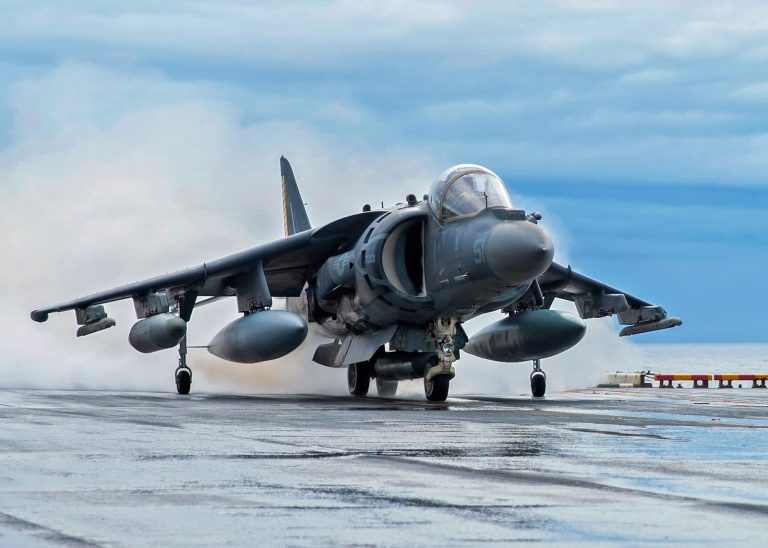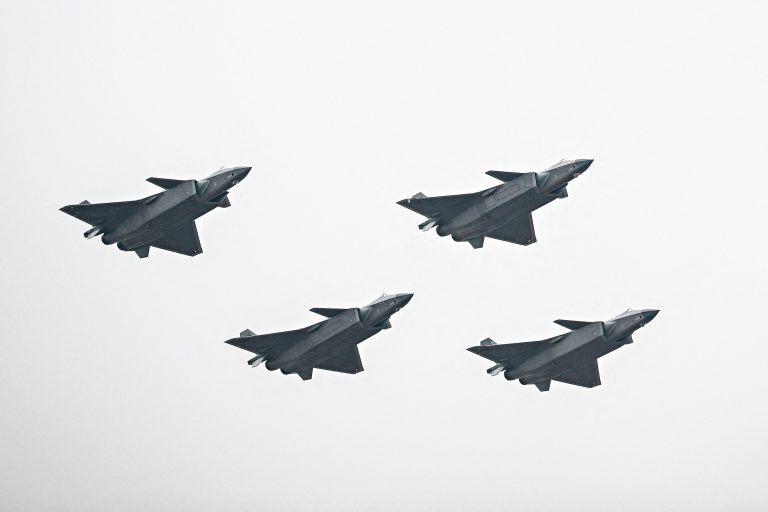At a recent House Armed Services Committee congressional hearing, top American military officials warned that China’s ability to project its naval prowess in the Indian Ocean is alarming. General Stephen Townsend, head of the U.S. Africa Command, pointed out that China now owns a military facility in the African nation of Djibouti that extends support to the country’s growing air force. Opened in 2017, the Djibouti base is located just 7.4 miles away from the U.S. military base, Camp Lemonnier, home to around 4,500 American troops. Other nations that have military bases in Djibouti include Italy, Japan, and France.
“Their first overseas military base, their only one, is in Africa, and they have just expanded that by adding a significant pier that can even support their aircraft carriers in the future. Around the continent, they are looking for other basing opportunities… [China] very much ha[s] the intent to establish additional overseas bases in Africa, whether that be on the Atlantic coast of Africa or the Indian Ocean coast of Africa… China is of great concern. They are literally everywhere on the continent. They are placing a lot of bets down. They are spending a lot of money,” Townsend said at the hearing.
In May 2020, a Forbes report had published satellite images of China expanding its facilities in Djibouti. Defense expert H. I. Sutton pointed out that the 1,120-foot pier shown in images might be aimed at accommodating Beijing’s new military vessels. At present, China has two aircraft carriers – Shandong and Liaoning. A third carrier is scheduled to be completed sometime later in the year and is expected to be a larger ship with a catapult launch system that will launch heavier planes.
So many nations have military bases in Djibouti because it sits next to the Bab-el-Mandeb Strait that separates the Red Sea and the Gulf of Aden, with the Red Sea being the gateway to the Suez Canal, a passageway that accounts for almost 12 percent of global trade. There have been conflicts between the military bases of China and the United States in Djibouti.
In 2018, Chinese military personnel at the base targeted American military pilots with high-powered lasers. Plus, China is becoming a huge economic power in Africa, with its investments in the continent outpacing that of the U.S. Through these investments, Beijing pushes African nations into a debt trap and eventually gains access to key infrastructure in the region.
Success
You are now signed up for our newsletter
Success
Check your email to complete sign up
At another congressional hearing held on April 20, Navy Admiral Charles Richard, the head of U.S. Strategic Command, which oversees America’s nuclear weapons, warned that China’s nuclear stockpile was expanding at an unprecedented rate. He highlighted Chinese advancements in the development of fast breeder reactors, a type of fast reactor that produces more fissile material than it consumes. A certain portion of these materials can be diverted to manufacture nuclear weapons.

“With a fast breeder reactor, you now have a very large source of weapons-grade plutonium available to you, that will change the upper bounds of what China could choose to do if they wanted to, in terms of further expansion of their nuclear capabilities,” Richard said in a statement.
China’s first fast breeder reactor is scheduled to be rolled out in 2023. A report published last year by the Stockholm International Peace Research Institute (SIPRI) warned that China was trying to modernize its nuclear arsenal significantly. It estimated China’s nuclear stockpile at 320 weapons.
Taiwan war
As the Chinese military develops, doubts over America’s capability to defend Taiwan are also increasing. According to David Ochmanek, former senior Defense Department official who helps run war games for the Pentagon at the RAND Corp. think tank, in most stimulated combat scenarios where China invades Taiwan, the United States ends up on the losing side.
In such exercises, the Chinese ‘red team’ wipes out the Taiwanese air force within minutes while the American ‘blue team’ military bases in the Pacific are attacked; the result being U.S. warships and aircraft are kept away from the region by a wide arsenal of Chinese missiles.
Military officers stationed in the Pacific have warned the Pentagon that they need to change their mindset on dealing with China, which includes shifting more weapons to Asia, developing new combat tactics, and so on. If American finds itself on the defensive in Taiwan, it could shake the confidence of its allies.
“If we make no changes in posture, then absolutely, you’re going to find a future where we’re simply outmatched… You can’t just maintain the same static line of forces that we have currently assigned, particularly west of the International Date Line. That will not do the job,” a defense official said to NBC News.
China’s growing cyber-warfare
There are also concerns about China’s growing cyber warfare and electronic capabilities. Some warn that Beijing might employ such technologies to blow up American digital communication systems if a conflict were to occur, thus crippling the U.S. military.
Peter Singer, strategist at the think tank New America, explained the situation in an interview with Nikkei Asia, warning that the “opening battle of the next major war will be silent.” In fact, the battle might already have been fought before most people even get wind of it. In a cyber-war, it is the moves one makes weeks before the actual attack that matter.
Billy Fabian, a senior analyst at data and analytics firm Govini and adjunct senior fellow at the Center for New American Security, notes that the future conflict between the two superpowers will be very different. For one, every domain will become a battlefield. Secondly, time will be of the essence. Most scenarios where the U.S. ends up going to war with China predict such conflicts to happen in Beijing’s backyard, which means that the American military will only have a short period of time to gain an advantage over the PLA.
“When you put those two things together, there comes a need for the United States to fight inside of these highly contested battlefields in these highly contested environments, early in a conflict without gaining dominance in all domains… We have to expect that given their cyber capabilities, given their electronic warfare capabilities, given their kinetic capabilities and ability to strike critical nodes, that connectivity will at times — and potentially for long stretches — be disrupted, degraded, or even denied,” Fabian said to Nikkei Asia.















